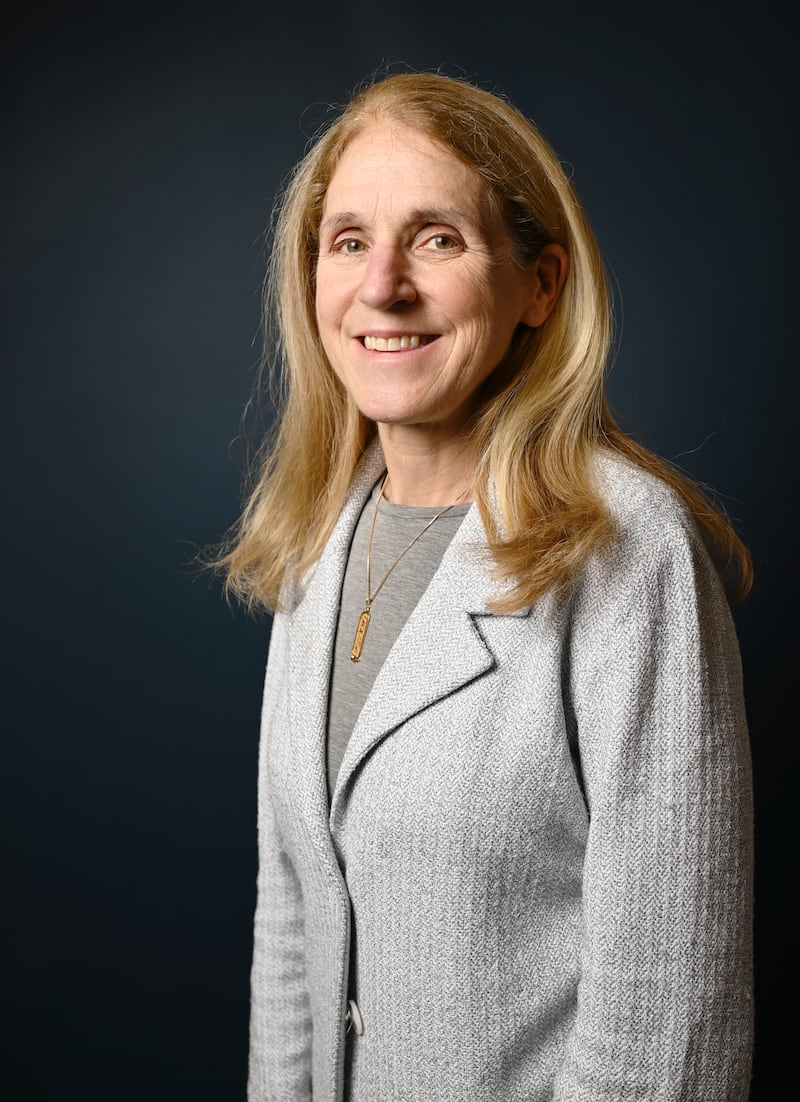Democracy is what happens while you’re making other plans.
In this off-cycle May 16 election, no marquee contests jump off the ballot. It’s a slate of school board seats (most of them uncontested), a county commissioner’s job that came open midterm, and a couple of tax measures. Maybe this is an election you can ignore?
Not a chance. Little decisions have a way of growing in significance. Public schools in Portland are losing more students than an episode of Yellowjackets. Multnomah County is central to reducing the number of people sleeping outside. And tax measures are always worth paying attention to.
This election, like all of them, is a chance to adjust the direction of Portland. So WW invited all candidates in contested races, as well as supporters and foes of the ballot measures, to our offices for joint interviews. (The spirited discussions can be viewed in full below.)
Unlike endorsements issued by many labor unions, advocacy groups and business guilds, newspaper endorsements are not seals of approval or pledges of solidarity. They are advice to voters—to you—on how to think about tough decisions.
We hope this advice proves stimulating and useful, whether you agree with us or not. Sweat the small stuff—and vote.

Multnomah County Commissioner
District 3
Julia Brim-Edwards
Eastside voters get a choice to select new leadership because the commissioner who previously represented this district, Jessica Vega Pederson, won election as Multnomah County chair last November. (Former state Sen. Diane Rosenbaum [D-Portland] now serves as Veda Pederson’s designated replacement but is not seeking the office.)
The district up for grabs runs between 33rd and 148th avenues south of Interstate 84 to the Portland city limits.
The Multnomah County Board of Commissioners traditionally gets less attention than the Portland City Council but arguably plays a greater role in confronting the most difficult problem the city faces: the unsheltered homelessness that has remade the Rose City into a shantytown.
The Joint Office of Homeless Services, despite being nominally a city-county partnership, is located in county offices and reports to the county chair. This year, it has a budget of $255 million. That office didn’t even exist a decade ago. Now, it presides over what may be the largest pool of discretionary funding controlled by a local jurisdiction in the state. Whoever is elected to this position could play a key role in helping Vega Pederson make sure the Joint Office spends its money effectively, something that it hasn’t always done. That will require making difficult decisions and holding staff and contractors more accountable.
In our endorsement interview, we asked the three candidates for this race, Julia Brim-Edwards, Ana del Rocío and Albert Kaufman, to grade the Joint Office’s performance.
Kaufman, 61, who owns and operates a small marketing company, awarded the Joint Office an A+; the other two candidates said they’d give it a D. (That answer alone disqualifies Kaufman, who is a nice guy but acknowledges the race is between the other two candidates.)
The two women agree on the letter grade—but that’s where the similarities end between Brim-Edwards, 61, and del Rocío, 36. District 3 voters have a choice between two candidates from different generations who present sharply different backgrounds, styles and levels of experience.
Both women have won school board elections. Brim-Edwards is currently serving her third term on the Portland Public Schools board. Del Rocío resigned from the David Douglas School Board less than 18 months into her first term. The single mother of two said her family situation changed, making her board service untenable.
Brim-Edwards began working in politics more than 30 years ago on the staff of U.S. Sen. Bob Packwood (R-Ore.). Most recently, she worked as a senior director at Nike for 17 years, retiring from that position in 2022. Throughout her time on the PPS board and at Nike, Brim-Edwards has play a role in large, often difficult decisions and policy battles.
During Brim-Edwards’ first term on the board from 2001 to 2005, she led the wrenching process of closing chronically under-enrolled schools. Before she returned to the board in 2017, she and other parents successfully battled the district to lengthen the school year. Returning as a board member, she helped generate support to renovate the city’s high schools. Last year, she led the fight to get lawmakers to pony up $120 million to relocate Harriet Tubman Middle School.
As Nike’s lead political operative in Oregon, she built an unlikely coalition with public employee unions to pass the $1 billion annual Student Success Act in 2019, a win nearly 30 years in the making, and also helped kill a bloated Metro transportation measure in 2020.
In short, Brim-Edwards gets things done. Along the way, she’s ruffled feathers and often made enemies. “Calculating” is a word people often use to describe her. When she makes up her mind, she plays hardball. Her PPS board colleagues illustrate the deeply divided views on her: three of them have endorsed her; the other three have endorsed del Rocío.
There’s a lot to admire about del Rocío. The first member of her family born in the U.S., she won an academic scholarship to the University of Southern California, where she enrolled at 16. She’s been active in the community, serving on Multnomah County budget advisory and charter review commissions and numerous other volunteer panels, and ran the nonprofit Oregon Futures Lab, which trains political candidates of color. She worked as an aide to Vega Pederson in the Legislature and at the county.
As a single mother, renter and transit rider, del Rocío brings a different perspective from that of Brim-Edwards, the well-heeled daughter of a wealthy health care entrepreneur. Del Rocío has scored a host of endorsements from groups representing people of color, recent immigrants and social justice causes. But it is difficult to pinpoint her signature accomplishment, in part because she’s rapidly jumped from one post to another.
To distill the choice here, it’s Brim-Edwards’ experience versus del Rocío’s potential.
For the pressing issues the county faces—effectively spending homeless dollars, working to alleviate mental illness and addiction, and providing other vital human services—voters would best be served by someone with a history of asking tough questions and making difficult choices.
A small but telling example: We asked all the candidates where they stood on Measure 26-238, a capital gains tax to support eviction representation that is also on the ballot. Brim-Edwards gave a simple answer (no, the same as Vega Pederson and most other local elected officials) and a succinct explanation. Del Rocío claimed she hadn’t decided and followed up with a two-page memo elaborating on her thinking—but still making no decision.
At this difficult juncture in Multnomah County history, voters need a budget hawk who will help Vega Pederson devise and execute a plan, even if that means making some people angry.
What Brim-Edwards would bring to a picnic: Friends.
Portland Public Schools Board
Zone 3
Patte Sullivan
Update, Tuesday, May 9: WW initially endorsed Derrick Peterson in this contest. On May 3, he withdrew from the race, following media reports of his church ties to a Christian nationalist group. Since then, he has declined to answer WW’s questions regarding his affiliations. But WW obtained a text message from Peterson to a PPS board member in which he says that if he wins the seat, he will keep it.
It’s unusual for this newspaper to reverse an endorsement, but Peterson has left us little choice with his inconsistency and lack of transparency. His opponent, Patte Sullivan, is not running a serious campaign, but she is well intentioned and, as a former teacher, has relevant experience. Also, it’s clear why she’s seeking the office. Vote for her.
We are leaving up our original endorsement for transparency. It is printed in full below:
Four of the seven seats on the Portland Public Schools board appear on the May ballot, but only one race is contested. Incumbent board members Andrew Scott and Michelle DePass drew no opposition; nor did Eddie Wang, a former Benson Polytechnic High teacher seeking an open seat.
On one level, it’s a relief to see Portland dodge the national wave of hard-right school board hijackings that effectively shutter libraries and shove kids back into the closet. But it’s also a missed opportunity for hard discussions about whom a shrinking school district serves. WW reported last month that Portland kindergartens have seen enrollment drop by 17.3% in two years—a steeper rate than the rest of the country and one that reflects a loss of trust among parents after a farcical year of distance learning and increasing safety concerns.
At least we got a conversation in Zone 3. The zone, which covers Portland’s westside from Lincoln High School in the Goose Hollow neighborhood up to Sylvan K-8 in West Slope, has been represented for two terms by Amy Kohnstamm, whose performance this newspaper has criticized (especially her role in failing to sufficiently vet a superintendent hire). She’s stepping down, and Derrick Peterson faces Patte Sullivan for the job.
You might remember Peterson, 60: Last year, he ran for Multnomah County sheriff, losing narrowly to Nicole Morrisey O’Donnell. He retired last year as chief corrections deputy after 35 years at the sheriff’s office, and now he teaches diversity and equity courses at three local colleges. We had reservations about Peterson’s sheriff bid, mostly centered on a dispute around his law enforcement credentials and his fondness for platitudes.
The licensing question is no longer relevant. The weakness for jargon remains, but we were impressed by some of his ideas, including a novel solution to the bitter debate about returning police officers to school halls. Peterson suggests modeling a school program after Portland Street Response, which replaces police officers with medical professionals as the first responders to people in mental crisis on the city’s sidewalks. We want more details but think the spirit of his idea is promising. Ideally, Peterson would use what he learned working behind bars to stop kids from sliding down the school-to-prison pipeline.
We’ll find out, since he faces no serious competition. Sullivan, 80, a retired teacher, has laudable motives for getting into the race—including wanting to protect LGBTQ+ kids from right-wing harassment—but lacks the requisite knowledge of the district’s operations. Peterson is our choice.
What Peterson would bring to a picnic: “I’m gonna go with the brisket. I’ve been known to deliver a mean brisket.”

Measure 26-238
Imposes capital gains tax to fund eviction relief services and legal representation
No
In a city where housing is scarce and tents are common, keeping renters in their apartments is crucial to preventing an ugly situation from getting even worse. The group behind this measure, the Portland chapter of the Democratic Socialists of America, began working on eviction relief more than a year ago. Fifteen cities, including New York, Seattle and San Francisco, enacted some form of legal representation for tenants facing eviction since 2017. Three states did, as well.
The reason: The playing field in eviction court is wildly uneven. Proponents of this measure say fewer than 10% of Oregonians facing eviction have legal counsel, while landlords always do. The results are predictably one-sided.
The solution Eviction Representation for All proposes is a 0.75% tax on capital gains, which the group says would raise $12 million to $15 million a year. (It’s worth noting that the last two grassroots tax measures, the 2018 Portland Clean Energy Fund and 2020′s Preschool for All initiative, generated vastly more than their architects projected.) The measure would tax the profits on the sale of assets such as stocks, bonds, property, businesses and other investments held for more than a year.
At the most basic level, however, the measure is deeply flawed. The campaign acknowledges two unforced errors. First, it failed to explicitly exempt profits from the sale of primary residences, as federal tax law does. That means a retired senior living on a modest income who sells his or her home could have to pay the tax on decades of appreciated value. Second, the tax is retroactive to Jan. 1, 2023. Normally, new taxes start after a measure passes. The upshot: If 26-238 passes, many county residents may incur tax liabilities this year they didn’t know about.
There’s more: The city of Portland’s Revenue Division, which would collect the tax for the county, says startup costs would be about $19 million and that administrative costs would consume about half the tax annually after that. (By contrast, the similarly sized Portland Children’s Levy, which is also on the ballot, limits admin costs to 5%.) The city says the high expense stems from the unique nature of the proposal.
No other county in America imposes a capital gains tax. That’s a clue that charging one probably isn’t good policy, if for no other reason than it gives people an incentive to live in other places. (Multnomah County’s population has already fallen two years in a row, experiencing one of the largest declines by percentage among large American counties.) And unlike the two other recent income taxes on high-income earners that county voters passed, this measure would tax capital gains on everybody, regardless of income level, and relies on a revenue stream far less stable than property or even income taxes. That means tax collectors would have to suss out who might have made taxable capital gains, rather than just piggy-backing on filers’ taxable incomes as they do with the Metro homeless services and preschool taxes.
No other city or state that funds eviction relief lawyers chose Multnomah County’s path. Some use federal funds. Boulder, Colo., imposed a tax in 2021 on rental units. But the most common approach is the one we’d suggest: earmarking existing tax revenue.
Government is all about the efficient allocation of scarce resources. Local voters are already paying Multnomah County more than $100 million a year to reduce homelessness through the 2020 Metro supportive housing services measure. A big part of that money already goes to helping marginally housed people stay in their homes—but the county’s own reports show it has failed to spend even half the money it gets from Metro. In other words, the money Eviction Representation for All wants is already sitting in county coffers, unspent.
There’s no question that evictions are a serious problem in Multnomah County and across Oregon. But we’d argue that the reason is policymakers’ failure to plan for population growth, leaving the state short by more than 110,000 housing units.
More housing, rather than a poorly conceived tax in a county that already passed two large local income taxes in 2020, is the right policy solution. That and spending existing new tax dollars that voters already approved for the precise purpose of keeping people in their homes is the right answer.
We encourage voters to reject this sloppy, unnecessary measure and instead raise their voices to encourage the county to deploy existing funds to help more residents avoid eviction.

Measure 26-240
Five-year renewal of Portland Children’s Levy
Yes
When City Commissioner Dan Saltzman first pitched the Portland Children’s Levy in 2002, we weren’t hot on the idea. We said it lacked oversight and asked: Why should the city pay for services that are typically the county’s bailiwick?
We’ve since warmed to the concept, in part because the reach into taxpayers’ pockets now seems modest compared to what’s been proposed in the next two decades, and partly because its administrators have proved capable stewards of the public trust. Indeed, when the Children’s Levy comes up for renewal every five years, we greet it with greater fondness, like a golden oldie.
Since first passing it in 2002, voters have renewed the property tax levy three times. In the last go-around, in 2018, it passed with 83% of the vote.
The program, in its latest iteration, funded 91 programs in five service areas: child hunger, abuse prevention, child care, after-school mentoring, and foster care. Recipients ranged from the Oregon Food Bank, which used the money to open more food pantries in schools, to Mt. Hood Community College, which expanded its Head Start programs.
The latest ballot measure would distribute an estimated $133 million over the next five years to programs reaching more than 15,000 Portland kids.
And it appears the money actually reaches them. Administrative expenses are capped at 5%, and the program produces readable and detailed annual reports. The last audit of the program showed that grant recipients met more than 70% of their outcome goals, which isn’t ideal but still remarkable given pandemic-related staffing shortages.
It’s so well run, says City Commissioner Dan Ryan, “it might be the cleanest, tightest, highest-functioning relationship that the city and county participate in.” And, to their further credit, Ryan and the Children’s Levy’s other caretakers have not increased the size of their request to voters. It remains at about 40 cents on every $1,000 of assessed property value.
Ryan is only the latest Dan on the Portland City Council responsible for shuttling the program past voters. Saltzman was a fierce proponent of the tax until he retired in 2018, after an unsuccessful bid to change state law to make the levy a permanent taxing district. “It’s his legacy,” Ryan says. “I don’t want to fumble that.”
That’s a healthy pressure for him to feel—and it’s why we prefer the five-year levy renewal to a taxing district. Local officials should have to show what they did with the public’s money. And that’s also why voters should renew the Children’s Levy, which has demonstrated a track record of real good for vulnerable kids. Vote yes.
